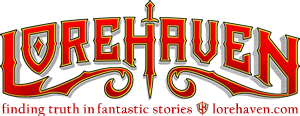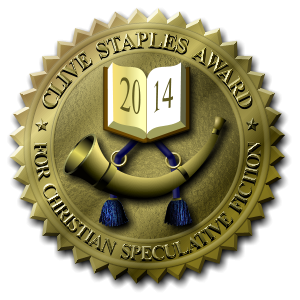A Stranger In My Own Home
Last week, in response to what Mike Duran experienced as a “stranger” at the Realm Makers Conference, he wrote a blog article entitled “When You’re the Oddball in a Room of Geeks.” I relate to his sentiment, probably more than he does.
The truth is, I’ve been an advocate for Christian speculative fiction for nearly as long as I’ve worked as a writer—which is now going on fifteen years. I, along with four other speculative writers, founded Speculative Faith as a team blog so that we could rally support for the genre (Stephen came on board some years later and expanded the vision).
 We also started the Christian Science Fiction and Fantasy Blog Tour as a way to support the books that were beginning to find publication. A number of years later I started the Clive Staples Award which ran for about five years, the last three with the support of Realm Makers. In other words, I am a proponent of Christian speculative fiction, which I would not consider limited to books published by members of the Evangelical Christian Publishing Association—the ECPA (which many people confuse with the Christian Booksellers Association—CBA).
We also started the Christian Science Fiction and Fantasy Blog Tour as a way to support the books that were beginning to find publication. A number of years later I started the Clive Staples Award which ran for about five years, the last three with the support of Realm Makers. In other words, I am a proponent of Christian speculative fiction, which I would not consider limited to books published by members of the Evangelical Christian Publishing Association—the ECPA (which many people confuse with the Christian Booksellers Association—CBA).
All that said, I find myself out of place among “geeks” of the speculative kind. The Oxford-American Dictionary has this to say about “geek”:
word trends: Is being a geek something to be proud of? A few decades ago, the answer would almost certainly have been no: the word was a cruel and critical label attached to clever, but socially awkward, people: Trekkies, computer geeks, and unpopular college students. Then in the 1990s, everything changed. The computer industry helped many geeks to achieve great success, and the wider perception of geeks began to shift. Being a geek was suddenly a positive thing, suggesting an admirable level of knowledge, expertise, and passion: geeks could do ‘cool stuff,’ and they could fix your computer! It’s now common for people to be self-proclaimed or self-confessed geeks, with geekiness no longer confined to the world of science and technology ( a music geek with an awesome vinyl collection | the kind of film that every true movie geek would give five stars). [emphasis mine]
But there’s the problem—well, two of the problems—I don’t fall into the category of “admirable level of knowledge, expertise, and passion” when it comes to speculative fiction. My passion is more for making Christ known, and if that happens in a contemporary novel or a mystery or romance, then I am just as happy to tell others about those books. I have no burning desire to read a book just because it is speculative. I’ve read some general market books, in fact, that have left me cold. In addition, I don’t want to write simply for speculative fiction geeks.
A few years ago, when the in word was “weird” rather than “geek” I wrote my feelings about this matter in an article entitled “The Heart Of Speculative Fiction Is Not Weird.” I appreciate the affinity writers have for others who imagine different worlds and strange happenings. It can be refreshing. At the same time it can be exclusionary.
I think of this in particular because of the launch of the new magazine, Lorehaven  which intends, among other things, to create book clubs among Christians in churches. I’m not sure “come join our geekiness” will win a lot of people to such an endeavor. I could be wrong (it wouldn’t be all that unusual!), but I wonder if there aren’t other readers out there who are simply readers who might be interested in a book club whether the chosen titles are speculative or not. After all, they might be like me and not necessarily feel as if they have the necessary “admirable level of knowledge, expertise, and passion” to be considered a speculative fiction geek.
which intends, among other things, to create book clubs among Christians in churches. I’m not sure “come join our geekiness” will win a lot of people to such an endeavor. I could be wrong (it wouldn’t be all that unusual!), but I wonder if there aren’t other readers out there who are simply readers who might be interested in a book club whether the chosen titles are speculative or not. After all, they might be like me and not necessarily feel as if they have the necessary “admirable level of knowledge, expertise, and passion” to be considered a speculative fiction geek.












































This.
For Lorehaven book clubs, I don’t mind using the term “geeky” if it will help people feel welcome. But in general, and among audiences who don’t embrace this term, I’m averse to it. Fantastic stories are not some novelty for Christians. They are part of our native language: our faith is based on the fact that, plot twist, we’ve been living all this time in a fantastical world ruled by a holy and loving God.
I would LOVE to be part of a Christian book club. It’s so sad that books are so expensive.
The key, Cindy, is to watch for authors who give away a book in order to promote the newest one. Also, become a book blogger and join the groups that run tours or ask you to post reviews. But for book clubs, it’s possible that publishers will give a discount price for a certain quantity of books. I’d hope that would be something Lorehaven will address at some point. In other words, there are ways! 😉
Becky